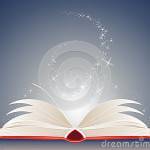One of the greatest gifts of writing fiction is the ability to create characters and worlds, resulting in new perspectives that change your understanding of the people and the world around you. I remember inventing Carla in The Inheritors, then puzzling over her familiarity. I woke up one morning realizing that she sprang from my mother—her rebellion against the world she came from but carried with her nonetheless. I see in her now the roots of my own belief that growth lies in such struggles, and it is the imagination that gives us the openness to shift perception and belief.
Carla gave me a new understanding of my mother, and a new respect. I can still see vividly my grandfather’s church, its white clapboard steeple rising from the hot, dry prairie. Inside, the floor is bare of carpet, the altar stripped of gilt, the walls are naked, the wood of the pews, scarred. The Dakota prairie sun blasts through the clear glass of the windows. That’s it. Raw heat on bare wood. My mother grew up sitting in that pew, listening to her father preach that the passions of man lead to damnation. That was the cruel fundamentalism of her father’s faith.
She escaped that angry God for the halls of reason, where she excelled in science. She shared my father’s hatred of dogma. Though not demonstrative, she was warm. Demanding, but not angry. But despite its harshness, she would find beauty in the picture of the prairie church I described above—in its simplicity, its unadorned surfaces, reflecting only the light of God.
Yet she lived the life of an academic wife and devoted mother. There was nothing in her of the punishing God of her father, yet she retained its code of selfless duty. Though she was the first to praise my writing, to become a writer would, for her, be an unacceptable act of self-indulgence. She was a bundle of contradictions—the struggle between opposing forces. Both worlds carry the rejection of human emotion, yet she responded to our tears with compassion.
Her belief in the dangers of passion combined seamlessly with my father’s belief that the greatest evils perpetuated by mankind are committed by mobs believing they are empowered by God or The Greater Good. Witch burning, lynching, and the Holocaust are the most famous examples, but the recent Trump campaign has given us a vivid picture of the power of such mobs. In my father, this fused with science’s rejection of the subjective to become a rejection of the personal—a condemnation of feeling. Central to both of them was the belief that no one faith has the Truth, but each has a piece of it—yet my father created his own form of absolutism in his rejection of emotion.
This last, and most central edict led to my rebellion. As a teenager I joined the Catholic Church. In part this was because the boy I loved, my future husband, was Catholic, but I found forgiveness there for my humanity—my subjective self. I also found emotional release in the ritual and music of the Church, and together they made dogma irrelevant. I remember a telling theme from Harold Frederic’s novel, The Damnation of Theron Ware: the Protestant Church is for the saved; the Catholic is for sinners. My aversion to claims of infallibility won out in the end, and I left the Church whose dogma my mind had never fully bought. But I came away from the Catholic experience with a deep sense of the importance of passion in human greatness as well as human folly, and in the beauty of music and ritual in its expression. I think perhaps that experience opened me to my imagination for the first time, and in the long run, to writing. Ironically, by rejecting my father’s absolutism, I supported his maxim; I came away changed by Catholicism’s piece of the truth and with a new, far more complete, sense of myself.
In the end, I found no contradiction between the reason of my early intellectual training and the passion of my Catholic experience or my fiction writing self. I moved back and forth between teaching critical thinking and writing fiction with no problem. Fiction has its own logic—named credibility. The story must fit with the readers’ sense of the way humans behave to be believed—to become “true.” The whole experience sent me off to study the relationship between imagination and reason, between art and science. They are not opposites, and the problems start when you slam the door on one or the other. Imagination gives the ability to see beyond one’s present perspective—in science, art, and life.



Comments are closed.